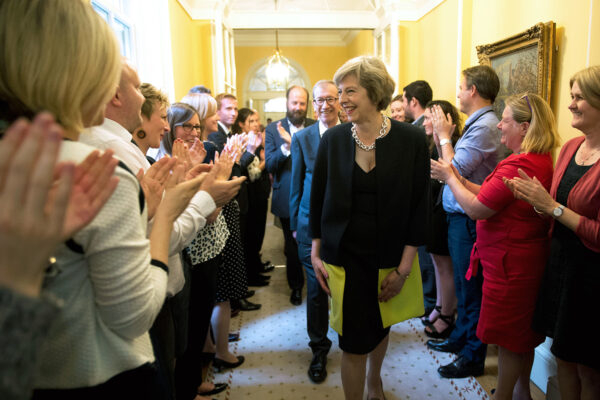
Theresa May might have been better off not calling an election after all.
Only a few weeks ago, her Conservative Party was projected to win its biggest majority in a generation.
Now the gap with Labour has narrowed, mostly as a result of it cannibalizing the Liberal Democrats and Greens.
One survey has even predicted a Labour victory.
That seems incredible. I argued here last week that a party led by Jeremy Corbyn is unlikely to prevail.
But it is now possible the Conservatives will be returned with a smaller majority or even lose control of the House of Commons.
That could lead to calls for May’s resignation.
Knives out
Jon Worth argues that May will likely be ousted unless the Conservatives expand their majority next week.
Even if she defends the party’s majority but loses seats, the knives would come out for the prime minister in the medium term, according to Worth.
The only way she might then stave off a leadership challenge would be to carefully balance hardcore Brexiteers versus pragmatists, like Philip Hammond, in a cabinet reshuffle. “Get it wrong and mutiny starts sooner.”
Cameroon alternatives
Who could replace her?
Betting markets give Hammond, Boris Johnson and Amber Rudd the best odds.
Sajid Javid, a junior minister, and Ruth Davidson, the Scottish Tory leader, take fourth and fifth place, respectively. Both are seen as rising stars. The trouble for Davidson is that she is not a member of Parliament, but rather a member of the Scottish Parliament.
Four out of five — Hammond, Rudd, Javid, Davidson — sided with David Cameron in opposing Brexit.
If May loses the election, her right-wing, hard-Brexit strategy would likely be repudiated in favor of a more centrist, Cameroon line.
Johnson is the odd one out. He led the campaign for Britain to leave the European Union. I don’t see how he can credibly claim to represent the future of the Conservative Party if voters punish it for embracing Brexit.
